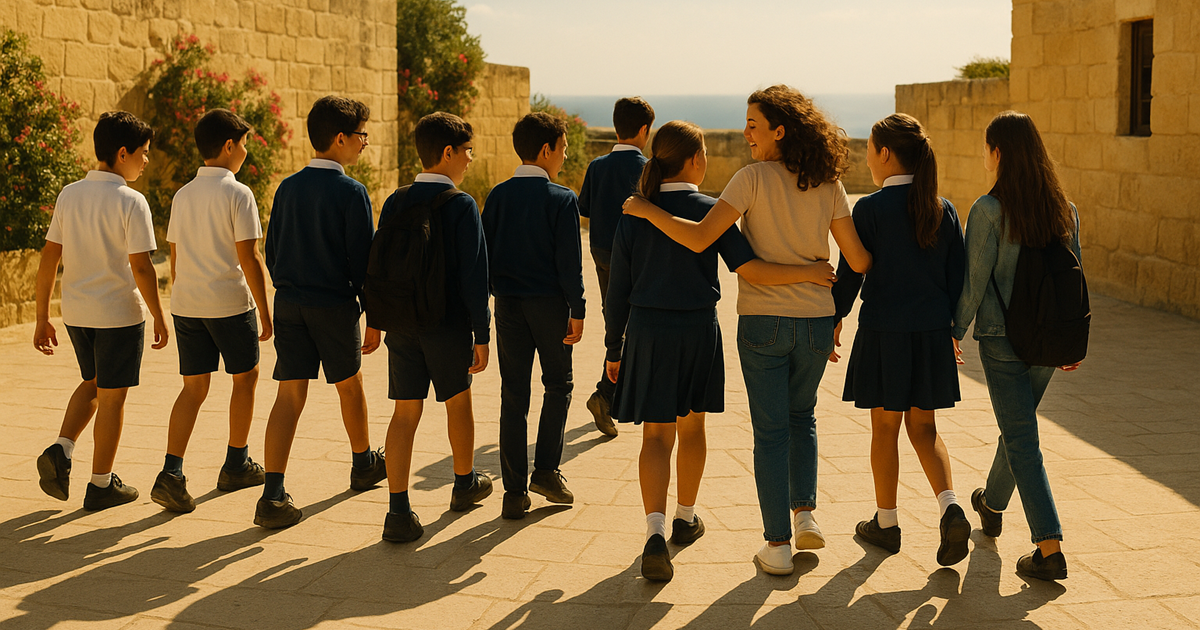What kind of society will Malta be in 10 years? The answer depends less on policies passed in Parliament than on values forming quietly in today’s classrooms. Our future cohesion will not be dictated by headlines, but by how a generation of young Maltese teenagers learns to live with one another, across differences, across backgrounds, and across competing worldviews.
That’s why Learning to Live Together: Values for Cohesive Living is not just another education study. This 18-month national research project led by edQuanta and part-financed by the research excellence fund (REP) administered by Xjenza Malta, is the first of its kind in Malta to focus on what 11- to 13-year-olds believe about fairness, tolerance, empathy, respect, civic duty, sustainability, and more. At this age, values aren’t fully set in stone, but they’re not fluid either. They’re being tested in schoolyards, formed in friend groups, reinforced or challenged at home, and increasingly shaped by what’s happening online.
This is Malta’s first systematic attempt to listen, not speculate, about what truly matters to our youngest adolescents. Are they driven by personal success or by social responsibility? Do they value honesty over loyalty to their peer group? Do they see diversity as a strength? Do they feel included, heard, and safe in their own communities?
The timing could not be more important. One in every seven students in Malta’s classrooms now comes from a foreign background. Public discourse has become louder, more polarised. And the challenges today’s teens face climate change, digital overload, social media pressure are unlike anything their parents grew up with. If we’re serious about cohesion, we must understand the values that help young people navigate these pressures not when they’re 18, but now, when their character is still being formed.
The research, already underway, combines student surveys, focus groups and interviews with educators and youth service providers. The goal is not just to collect data, but to produce usable insight. School leaders will gain concrete tools to strengthen empathy and cooperation in the classroom. NGOs will be able to tailor programmes that reflect what today’s teens care about. Policymakers will receive evidence, not assumptions on how values like fairness, inclusion, and civic engagement are developing across the country.
Most importantly, this study is committed to impact. Findings will be translated into teacher training modules, curriculum recommendations, and practical strategies that help schools teach values as part of everyday learning, not as an afterthought. Long-term, the team at edQuanta hopes this is just the beginning. A future phase may track how these values evolve over time. Do 11-year-olds who believe strongly in social justice still hold that view at 16? Does civic responsibility in early adolescence lead to active citizenship later?
“Our responsibility is to listen carefully and act decisively,” said Elaine Catania, CEO of edQuanta Ltd. “If we want a more just, confident, and united Malta, it begins with understanding what our youngest citizens believe. Then we must do the work through schools, communities and public policy to ensure those values take root.”
Values shape behaviour, and behaviour shapes society. If Malta wants future leaders who can cooperate rather than compete, listen rather than shout, and build rather than divide then the work must begin now, while those future citizens are still in Year 7.
